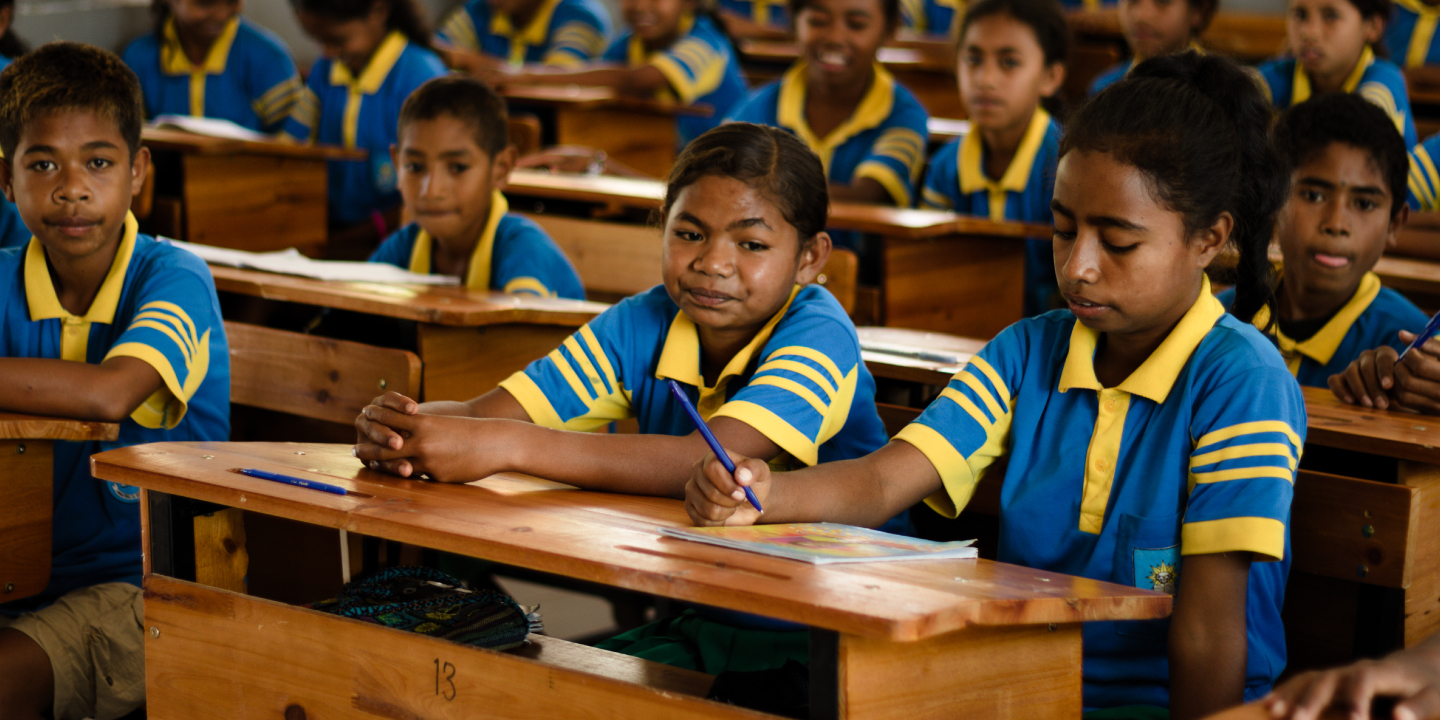
Improving learning outcomes through teacher development
Research 11 Oct 2021 7 minute readACER is building evidence to support Australian investments in teacher development in the Asia- Pacific region.
The Australian Government’s Department of Foreign Affairs and Trade (DFAT) has commissioned ACER to conduct the Teacher Development Multi-Year Series, a long-term, multicountry study to determine the extent to which Australian investments improve teaching quality and student learning.
The Office of Development Effectiveness 2015 evaluation report, Investing in Teachers, recommended that DFAT monitors and evaluates teacher development investment outcomes. Consequently, the purpose of the study series is to answer these questions:
- To what extent have Australian investments in the professional development of teachers contributed to improved outcomes?
- What are the conditions of success for teacher professional development investments, and how can lessons learned inform future programming?
DFAT Senior Education Advisor Dr David Coleman says, ‘We value ACER’s expertise and independence in leading this ground-breaking study. By deeply analysing teacher effectiveness and the impacts on student learning across three very different country contexts, the study is a major contribution to understanding education reforms in real time.’
Timor-Leste study
In Timor-Leste, the three-year study focuses on Apoio Lideransa liuhusi Mentoria no Aprendizajen (ALMA, as part of the Australia-Timor-Leste Partnership for Human Development) – previously known as the Professional Learning Program. ALMA aims to improve teaching quality and school learning environments by supporting school leaders and teacher effectiveness. The main components include leadership training, teacher working groups, mentoring and the use of tablet-based applications to support school leaders and mentors.
The study seeks to understand the extent to which education stakeholders, including school leaders and teachers, develop teaching knowledge and change practices over time. It also explores whether participation in the ALMA program leads to improvements in learning outcomes for students. This study is framed within the context of Timor-Leste’s new National Basic Education Curriculum (Grades 1 to 6), which incorporates a child-centred approach to teaching and learning.
To analyse teaching quality and implementation of the new curriculum, interviews at national and municipal level, and school level case studies from six clusters in six municipalities are being conducted over three years. The evaluation of learning outcomes is based on the Early Grade Reading Assessment (EGRA) and Classroom Based Assessment data from 2017, school level case studies, national and municipal level interviews and supplemental classroom observation data. The final report will be released in 2022.
Lao PDR study
Lao PDR is a diverse country with 50 official ethnic groups and an estimated 84 spoken languages. The official language of instruction is Lao, which many remote communities do not speak. Children in these areas have very limited exposure to print prior to schooling.
ACER is conducting a four-year study to investigate the extent to which investment in teacher development improves teaching quality and student literacy in Lao language. The study focuses on one component of the Basic Education Quality and Access in Lao PDR (BEQUAL) program, in 32 of the most educationally disadvantaged districts in the country.
The study investigates the impacts of the Lao language in-service program on teaching quality and whether students’ literacy outcomes improve following implementation of the new curriculum. The study involves surveys of teachers and principals, Lao literacy tests of Grade 1 students, case studies of teachers, principals and pedagogical advisers, and Grade 1 classroom observations.
The study observes individual teachers and principals, and cohorts of students, with a focus on inclusive practices for linguistically diverse teacher and student populations, active learning and formative assessment of student learning.
Vanuatu study
ACER’s three-year study in Vanuatu evaluates the effectiveness of the Vanuatu Education Sector Program (VESP) in the staged introduction of a new primary education curriculum and the in-service teacher professional development support that accompanies it.
Vanuatu is a diverse country, with more than 100 languages and dialects spoken. Since 2015, the first two years of primary education can be delivered in Bislama or the local vernacular due to changes in the language policy.
Vanuatu’s new curriculum and training aims to promote teaching practices that support inclusive education, such as student-centred learning and community connections, language transition and classroombased assessment practices.
The new reforms are being evaluated through case studies in approximately 30 schools over three years, national level focus groups and interviews, and the 2018 teacher questionnaires from the Pacific Island Literacy and Numeracy Assessment (PILNA). Learning outcomes are being measured through the Vanuatu Standardized Test, PILNA results, school level case studies and national focus groups and interviews. The final results will be published in 2022.
While the focus areas, data collection methods and results are unique to each study, the overarching conceptual framework for the study series provides valuable insights for researching teacher development investments in the region. Key themes emerging across the three studies include challenges related to language of instruction, approach to teacher development and embedding teacher development within a system of support.
‘Ultimately, we want to understand whether Australian investments in these countries have improved teaching quality and student learning. Quality evidence is critical to informing education policy and future investments in teacher development in the Asia- Pacific region,’ says Dr Elizabeth Cassity, Senior Research Fellow from ACER’s Education and Development research program.
The Teacher Development Multi-Year Series is an initiative of the Education Analytics Service, established by DFAT’s Education Section to improve the extent and quality of evidence and expertise used to inform its education policy and programs.
Further reading:
Read more about the Vanuatu Education Sector Program.
Learn more about the Australia–Timor-Leste Partnership for Human Development.
Read more about PILNA.
This article was first published in International Developments issue 10.
